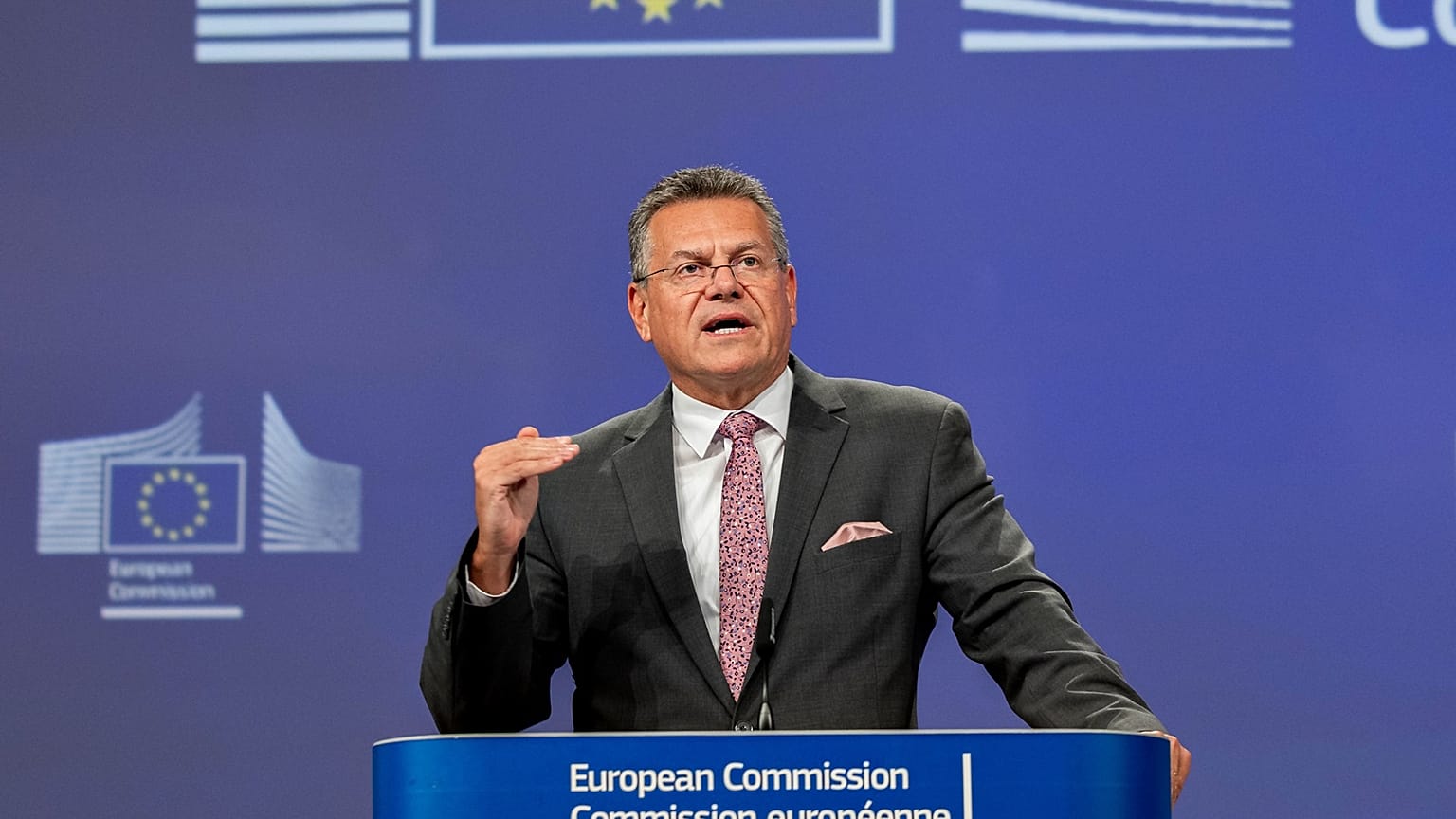Top Stories
EU Defends Controversial US Trade Deal Amid Rising Criticism

UPDATE: Just announced, the European Commission is standing firm against mounting criticism of its trade deal with the United States, which is now facing intensified scrutiny from the European Parliament. The deal, which has been in effect since late July, is under fire as former President Donald Trump threatens new tariffs, casting doubt on its future viability.
In a passionate defense, Maroš Šefčovič, the Commissioner for Trade, challenged critics, stating, “Tell me, who got a better deal than the European Union? Just tell me.” His comments came during a heated parliamentary session where lawmakers expressed deep frustration over perceived inequities in the agreement.
The current deal imposes a 15% tariff on most EU goods entering the US, while US products largely enter the EU duty-free. Tensions escalated as the bloc committed $750 billion to American energy and $600 billion to the US economy, alongside plans to purchase $40 billion in American AI chips by the end of Trump’s mandate—further complicating the EU’s strategic autonomy.
Lawmakers, including Anna Cavazzini from the Greens, condemned the deal as “unbalanced” and detrimental to Europe’s energy independence. The European Parliament’s trade committee is now facing a critical moment, as opposition may hinder the passage of legislation aimed at removing remaining tariffs on US products.
“The deal is quite bad, unbalanced, not only when it comes to the different tariff lines, but also when it comes to increasing our dependency on fossil fuels,” Cavazzini asserted.
The controversy is further fueled by Trump’s unexpected threat of “substantial additional tariffs” aimed at countries enforcing regulations on Big Tech, igniting fears of a renewed transatlantic trade war. Sefčovič reiterated the EU’s commitment to its legislative sovereignty but acknowledged ongoing disagreements regarding digital oversight, which remain unresolved.
As the situation develops, the US Congress has scheduled hearings to address the EU’s digital regulations, including the Digital Services Act and the Digital Markets Act, which are seen as critical to ensuring fair competition and combating misinformation online.
In response to the growing discord, Sabine Weyand, the director-general of the Commission’s trade department, stated that the EU must navigate a complex relationship with the Trump administration’s aggressive tariff policies. “Confronted with a determined US administration, the question for us is how we best defend EU interests,” she emphasized.
The European Commission’s leadership is now at a crossroads, as pressure mounts from within the Parliament and external threats loom from the US. Stakeholders are closely watching how this pivotal trade relationship will unfold in the coming weeks. With increasing public scrutiny, the future of the EU-US trade deal hangs in the balance.
As the debate intensifies, what happens next could reshape transatlantic relations and impact economies on both sides of the Atlantic. Stay tuned for further updates on this developing story.
-

 Top Stories2 months ago
Top Stories2 months agoTributes Surge for 9-Year-Old Leon Briody After Cancer Battle
-

 Entertainment3 months ago
Entertainment3 months agoAimee Osbourne Joins Family for Emotional Tribute to Ozzy
-

 Politics3 months ago
Politics3 months agoDanny Healy-Rae Considers Complaint After Altercation with Garda
-

 Top Stories3 months ago
Top Stories3 months agoIreland Enjoys Summer Heat as Hurricane Erin Approaches Atlantic
-

 World4 months ago
World4 months agoHawaii Commemorates 80 Years Since Hiroshima Bombing with Ceremony
-

 Top Stories2 months ago
Top Stories2 months agoNewcastle West Woman Patricia Foley Found Safe After Urgent Search
-

 Top Stories4 months ago
Top Stories4 months agoFianna Fáil TDs Urgently Consider Maire Geoghegan-Quinn for Presidency
-

 World4 months ago
World4 months agoGaza Aid Distribution Tragedy: 20 Killed Amid Ongoing Violence
-

 World4 months ago
World4 months agoCouple Convicted of Murdering Two-Year-Old Grandson in Wales
-

 Top Stories3 months ago
Top Stories3 months agoClimbing Errigal: A Must-Do Summer Adventure in Donegal
-

 World4 months ago
World4 months agoAristocrat Constance Marten and Partner Convicted of Infant Murder
-

 Top Stories3 months ago
Top Stories3 months agoHike Donegal’s Errigal Mountain NOW for Unforgettable Summer Views









